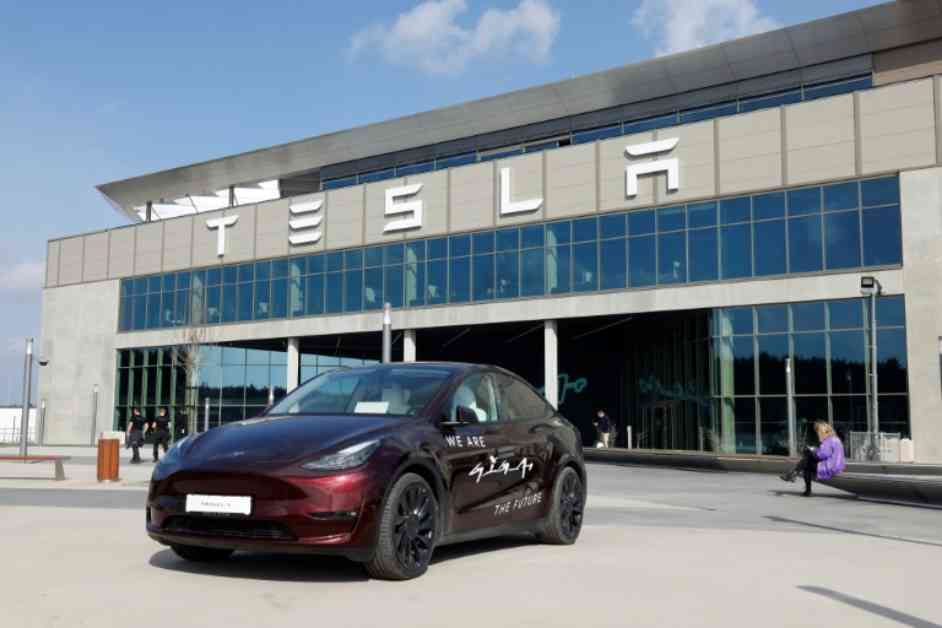Tesla, the pioneering electric vehicle (EV) manufacturer, is facing a significant challenge in Europe as its sales plummet by 40%, raising concerns about the impact of CEO Elon Musk’s political affiliations on consumer behavior. This sharp decline in European sales comes amidst controversy surrounding Musk’s vocal support for newly re-elected US President Donald Trump, sparking debates about the interplay of politics and consumer choices within the EV market.
Sales Slump Amid Broader EV Decline
In November 2024, Tesla sold 18,786 vehicles across the European Union, marking a stark drop from the 31,810 units sold during the same month in 2023. The year-to-date figures from January to November also reveal a 15% decline compared to the previous year. This downturn mirrors an overall 10% drop in EV sales across Europe, with major markets like France and Germany experiencing even steeper declines of 24% and 22%, respectively. Interestingly, hybrid vehicles have seen a rise in sales by 18.5%, surpassing petrol cars in market share.
Multiple Factors at Play
While some attribute Tesla’s sales woes to consumer backlash over Musk’s political stance, analysts suggest that various factors are contributing to this decline. Felipe Munoz, an automotive analyst at Jato Dynamics, points to new EU tariffs of 7% on Chinese-made cars, including certain Tesla models, as a factor dampening sales. He also highlights the impact of last year’s price cuts, which boosted sales temporarily but created an unfavorable comparison for this year. Munoz states, “Not all the cars sold by Tesla in Europe are Chinese-made, so tariffs alone aren’t to blame. The demand for EVs is cooling, competition is intensifying, and Tesla’s Model Y is ageing. A refreshed version is expected next year, and this could explain the current slump.”
Political Backlash
Musk’s endorsement of Donald Trump during the 2024 presidential campaign has alienated some of Tesla’s traditionally liberal customer base, leading to visible discontent among Tesla owners. In the US, some have gone as far as affixing stickers to their cars expressing their dissatisfaction with Musk’s political involvement. This shift has extended to Europe, with German pharmacy chain Rossman announcing in August that it would cease purchasing Tesla vehicles for its corporate fleet due to an “incompatibility” between Musk’s political affiliations and Tesla’s pro-environment ethos.
Ageing Lineup and Stiff Competition
In addition to political factors, Tesla is also grappling with challenges related to its ageing vehicle lineup and increasing competition in the EV market. The awaited refresh of the Model Y, one of Tesla’s flagship models, may be causing consumers to hold off on purchases until the updated version is released next year. Moreover, the competitive landscape for EVs has become more crowded, with traditional automakers and newer entrants offering compelling alternatives.
A Broader Market Shift
Tesla’s sales decline in Europe underscores a broader shift in the EV market, characterized by waning initial enthusiasm and intensifying competition. Manufacturers like Tesla are under pressure to innovate, adapt to evolving consumer preferences, and address concerns over ageing models while maintaining competitive pricing. The coming year will be crucial for Tesla as it navigates these challenges and aims to regain momentum in Europe with the anticipated release of refreshed models.
Personal Touch:
As a longtime Tesla enthusiast myself, I have witnessed the company’s meteoric rise and faced the dilemma of reconciling my admiration for its innovative technology with concerns about its CEO’s political entanglements. The recent sales decline in Europe serves as a stark reminder of the complex interplay between corporate decisions, consumer sentiment, and market dynamics within the EV industry. It prompts us to reflect on the broader implications of political endorsements on brand loyalty and the importance of staying attuned to evolving consumer preferences in a rapidly changing market landscape.













